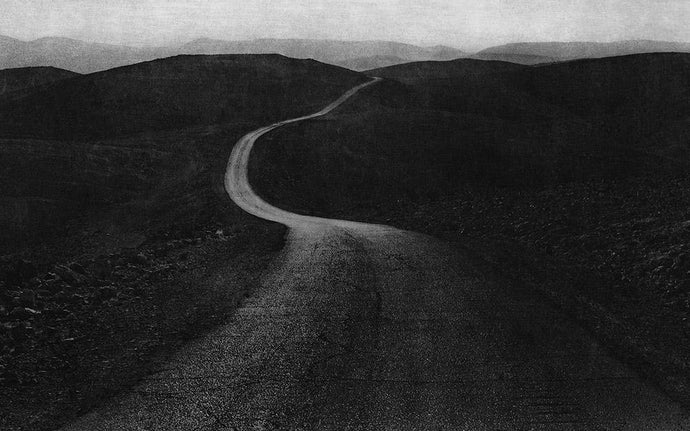Jungjin Lee | Unnamed Road
Jungjin Lee | Unnamed Road
For Jungjin Lee landscape photography is an exploration of the self, of her own mind. She considers observation to connect with one's mind and hence be an introspective activity. That as the gaze of the photographer transforms the environment; the gaze of the observer transforms the photograph. Jungjin Lee applies this philosophy to her latest project Unnamed Road.Jungjin Lee and The Environment
Jungjin Lee captures the contested territories of Israel and the West Bank. Lee's photographs demonstrate the diversity of the environment she is travelling through - snow, desert, city, the roads that connect them. The images strike one by their fluctuating and constant environment. It is this constancy that Lee uses to influence the observer. To insinuate the existence of fundamental truths in this environment. For just as the desert sands blow forming short-lived patterns, its sands remain when the pattern dies. Jungjin Lee's images are explorations of these patterns. The result of a photographer environment and nation in flux. The juncture of chance and imperfection that employs the viewer and their mind as the subject.Jungjin Lee and The Mind
Lee desires observers meditate through her work. She regards the photographic act as emotional and experiential. A captured moment of time and space that can echo in the observer. Jungjin Lee's photographs are more akin to paintings in their representation of the artist's mind. As they move through her work the individual notices patterns. They begin to mull over these patterns and their observations of them, their biases. Jungjin Lee employs this technique in her work to represent the contested territories. The observer enters a state where fullness of vision is possible. Where they are able to analyse their own mind's mechanics and knowledge. They enter a shaded state from the black and white images of Jungjin Lee's photography.
Words | Rob Woodgate










